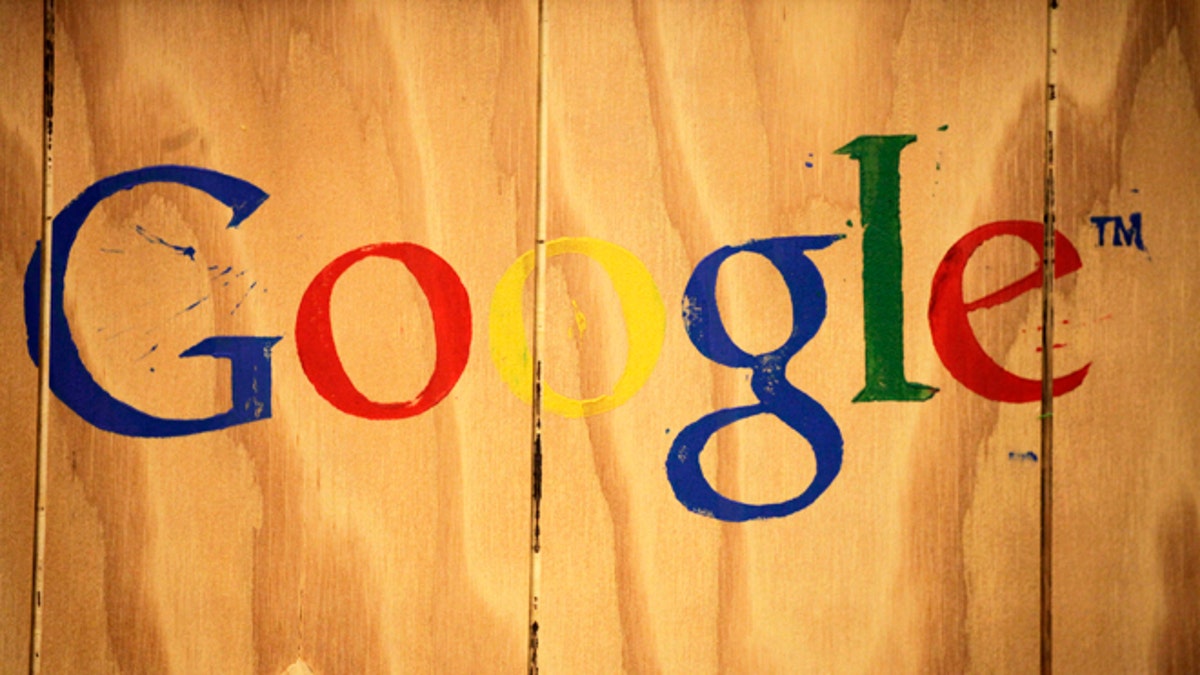
A Google logo is painted on the side of a plywood box at Google offices in New York. (AP Photo/Mark Lennihan)
They did warn us.
You get a message from a friend: “Hey, didn't know you were using those adult diapers! Great choice!” It turns out your picture is attached to an ad going out to thousands of people—and you didn't know a thing about it.
You're mortified to discover that Google + simply culled your likeness and tied it to the ad. It's part of what's called “Shared Endorsements.” Google has done something similar in the past with its “+1” program but now it has expanded the program, adding pictures and quotes from you to an ad even if all you did was follow that store or service.
How to disable it
As of this week, Google will start using your face and words in third-party ads for products and services. If that sounds disconcerting to you, here's how to disable it:
You can opt out by unchecking the box at the bottom of this page.
Google did warn users about the coming change in the company's terms of service about a month ago, and this week it finally made good on the promise. And it's easy enough to turn off the feature. If you follow a store or coffee company, your image and ungrammatical words, could appear under an ad for the company displayed to tens of thousands of people.
So what's the big deal?
- World’s first smart trench coat includes built-in 4G, wireless charging
- Yahoo! users hate latest email change
- Awesome tech you can’t buy yet
- Netflix adopts new look on Internet-connected TVs in bid to lure viewers from other channels
- Military’s heavily armed Supacat LRV 400 can also brew tea
- Duck Dynasty mobile apps
There's the Money:
Celebrities live off their endorsements, so what are you, chopped liver? Why shouldn't you get something for it? If your endorsement is so valuable to Google, shouldn't they pay for it? The company could at least toss some Bitcoin your way or a free latte.
If you follow a store, your image and words could appear under an ad for the company.
Of course, the standard response from tech companies is that you are using the service for free (and Google has some amazingly great services), but those services have to be paid for somehow. That's why it is increasingly forcing users to sign up to Google + to use some YouTube features. This kind of “innovative” and “disruptive” advertising and dataming is a way to pay for such amazingly great services.
It sounds like a reasonable argument except that Google is already one of the most profitable tech businesses in the world. The Google billionaires don't seem to be hurting for revenues. Squeezing more money out of you by using your visage and tracking your online behavior seems, well, greedy.
It's Deceptive:
Just because you like something, it doesn't mean you would recommend that millions buy it or that you endorse the behavior of the CEO. But that is exactly what these customized Google ads imply, that you are endorsing a person, place or thing without qualification. That is blatantly false, of course, but at the moment, it's legal.
It's also intentionally deceptive in that adding your appearance (or MOS, man on the street, image) to the ad makes it appear that you consented, but of course you've done no such thing. It also doesn't convey other information that may have influenced that endorsement (hey, my sister in law runs the store, of course I liked it). It looks ripe for a Federal Communications Commission complaint.
You Cannot Give Consent:
No one calls you or sends you a text (or a contract) asking for your permission. If they did, then perhaps many of us would say, “Why not? I love their skiis!” But you are not given the option to publicly like one product or choose not be associated with a certain pizza chain.
Yes, you can go to the Google + settings and turn off Shared Endorsements, but it's a Facebook-style move that is designed to fly under the radar. They're hoping you don't notice.
Privacy and Piracy:|
Publishing your likes, the products you buy, and the services you use is not a harmless practice. It can lay you open to burglars, hackers, fraud and identity theft. Pretending that it doesn't is simply not being truthful to people.
Sure, there are those who want to be chosen and won't be. Those people can go Tweet their endorsements.
You're Fair Game:
In a world where everyone from the National Security Agency to Google is tracking your every move, people should know better. That's the attitude from folks like Google's Eric Schmidt. It's a digital retread of caveat emptor, buyer beware.
However, when every Web site can change its terms of service every day, it's unreasonable to ask each of us to track and police on a daily basis what these companies do.
Naturally, you can opt out, not converse with friends online, and limit your career opportunities by eschewing every sort of social networking. Or you can protest. Send Google messages, and do what many have done: Switch your picture with that of Eric Schmidt. Then you can like as many embarrassing products as you want.
Follow John R. Quain on Twitter @jqontech or find more tech coverage at J-Q.com.
